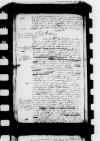Reverendissimo in Christo Patri et Illustri Domino, domino ⌊Ludovico Vaca⌋, episcopo Palentino comitique Perniae, amico et fratri carissimo ac
honorando
Reverendissime in Christo Pater, Illustris Domine, frater et amice carissime et honorande. Salutem omnisque accessionem felicitatis Dominationi Vestrae Reverendissimae precor ex animo
et
quas possum gratias habeo, quod post tot curricula intervallaque temporum et locorum familiaritatis inter nos apud vere magnum illum olim cancellarium ⌊[Mercurinum] Gattinarium⌋, cuius animae Deus misereatur, amicissime contra[c]tae in ⌊⌋ amantissime meminerit. Quibus me totum fere mente rursus in ⌊Hispanias⌋ rapuit atque quam iucunde suaviterque inibi tot annis cum Dominatione Vestra Reverendissima cumque aliis plurimis meis amicis
vixerim, refricuit ac in memoriam mihi reduxit. Fuitque mihi apprime gratum, quod ex cf. Plin. Nat. 6.203-205 Iuba de Fortunatis ita inquisivit: Proximam ei Canariam vocari a multitudine canum ingentis magnitudinis ⌊Canaria illa fortunata insula[1], quae a canibus nomen habetcf. Plin. Nat. 6.203-205 Iuba de Fortunatis ita inquisivit: Proximam ei Canariam vocari a multitudine canum ingentis magnitudinis ⌋, ad homines feliciores pinguioremque episcopatum ⌊Palenciam⌋ meritis et virtutibus promoventibus a ⌊sacratissima caesarea et catholica maiestate⌋ Dominatio Vestra Reverendissima sit translata. Qua in re quantum possum impensius Dominationi Vestrae Reverendissimae congratulor et ⌊sacratissimae caesareae et catholicae maiestati⌋, quod meritorum multarumque bonarum animi corporisque dotium Dominationis Vestrae Reverendissimae dignam rationem habuerit, gratias quoad eius a me fieri potest, habeo immortales, ⌊eiusque maiestati⌋ per oportunitatem aliquando, quantuscumque hic s[um] cum facultatibus meis et inserviendi propensatione, a Dominatione Vestra Reverendissima commendari peto. Debeo enim non parum ⌊eius maiestati⌋ gratiarum ob summam clementiam, q[ua] me per ea tempora a ⌊serenissimo rege meo Poloniae⌋ oratorem est prosecuta, tum etiam, quod auspicia felicitatis meae in aula ⌊eius maiestatis⌋ mihi creverint. Unde iis diebus factum est, quod ex hoc meo Culmensi episcopatu ad digniorem longeque abundantiorem, quemadmodum Dominatio Vestra Reverendissima, sim postulatus, in
proximoque habita ⌊Sedis Apostolicae⌋ confirmatione, pro qua ⌊Romae⌋ nunc tractatur, ad Varmiensem, inquam, episcopatum sum transferendus. Ceterum, quomodo ad commendationem Dominationis Vestrae Reverendissimae ⌊Graciano nostro⌋ afficiar, licet praeter voluntatem meam matrimonium hoc confectum sit, quandoquidem et hic vidissem ⌊illam⌋ libenter, neque sponsus defuisset, ipse Dominationi Vestrae Reverendissimae declarabit.
cf. Adagia 1526 No. 1272 Quod factum est, infectum fieri non potest, quod semel est factum, fieri infectum haud queat unquam (Ps. Phocyl. 56 in Erasmus’ translation) ⌊Cumque iam infectum esse nequeatcf. Adagia 1526 No. 1272 Quod factum est, infectum fieri non potest, quod semel est factum, fieri infectum haud queat unquam (Ps. Phocyl. 56 in Erasmus’ translation) ⌋, utcumque res habet, benevolentiam tamen meam suo tempore experiet[ur], cognoscetque et ponderis et momenti habuisse apud me plurimum intercessionem Dominationis Vestrae Reverendissimae, quam ⌊Christus Iesus dominus noster⌋ quam diutissime sospitet prosperetque in omnibus.
[1 ] Vaca was the Canarian bishop of Grand canaria in the years 1523-1530, and then (as Dantiscus seems not to know) was transferred to Salamanca, and in 1536 – to Palencia
